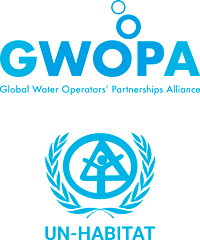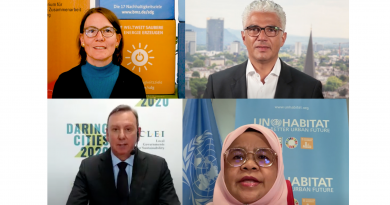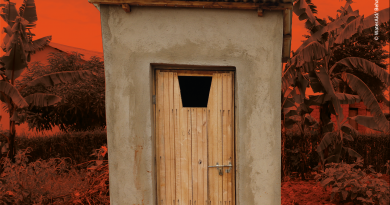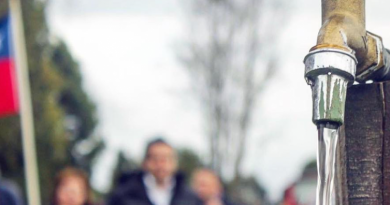WOP-LAC Activities
Climate Change Webinar – Lessons learned and risk management plans
At a sector level, climate change, with increasingly frequent events and greater consequences, affects the availability, quality, and quantity of water, continually putting the provision of the service to the test.
In Central America and the Caribbean, extreme events such as hurricanes, tropical storms, and droughts threaten infrastructure. In the Andean zone, the variation in runoff and the retreat of glaciers affect urban and rural populations. Droughts and floods have increasingly costly effects: we do not have to limit ourselves to thinking about solving the problem; we also have to work in advance. Performing a risk assessment is essential. To achieve this, it is necessary to improve the quantity and quality of information and strengthen capacities to manage data, propitiating the design of appropriate risk management strategies, transforming operations, and restoring ecosystems.
To understand risk assessments, more than 80 people participated in a webinar organized by WOP-LAC on September 27 2023, to see the presentations of Climate Change: Lessons learned and Risk Management Plans. (Colombia), Aguas de Puerto Cortes (Honduras), Aguas Mendocinas (Argentina), and AyA (Costa Rica).
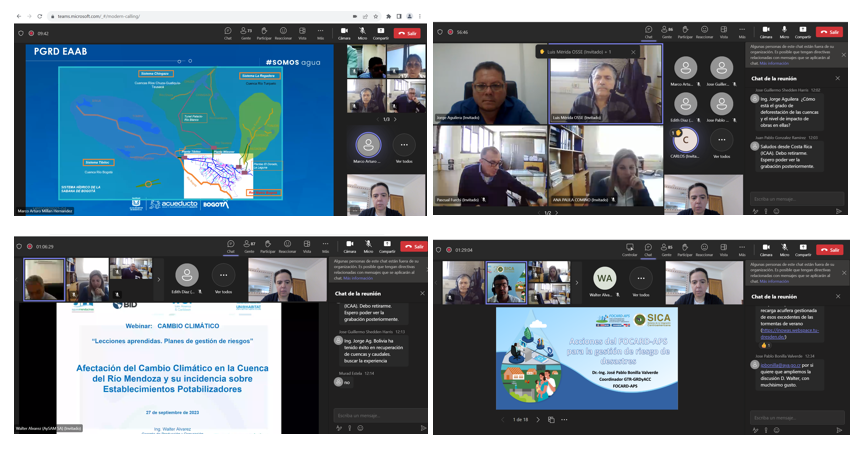
After the Workshop on Non-Revenue Water: WOPs and results
The WOP-LAC Regional Workshop on Non-Revenue Water organized in November 2022 continues to bear fruit: this year they coordinated three WOPs on the problem (Aguas de Lima Norte (Peru) – AGUAPEN (Ecuador), AySA (Argentina) – OSSE (Argentina), AySA (Argentina) – ASSA (Argentina)), which are already showing results and for 2024 there are two more partnerships in preparation. The exchange of knowledge in Latin America has the support and interest of operators and has an impact on the service.
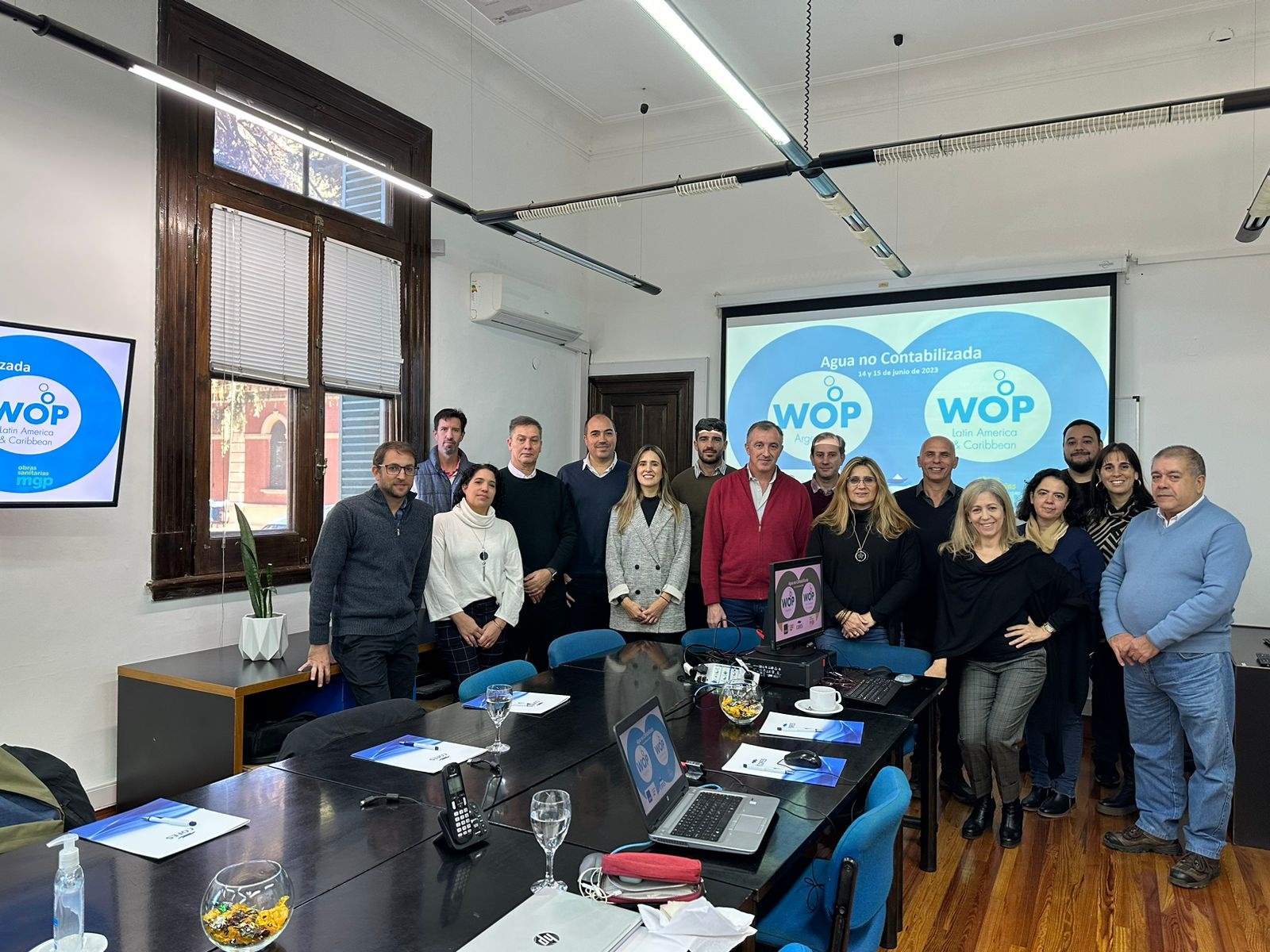
Spanish version
Webinar Cambio Climático – Lecciones aprendidas. Planes de gestión de riesgos
Más de 80 personas se conectaron el 27 de septiembre al webinar organizado por WOP-LAC, para ver las presentaciones de EAAB (Colombia), Aguas de Puerto Cortes (Honduras), Aguas Mendocinas (Argentina) y el AyA (Costa Rica).
A nivel sectorial, el cambio climático, con eventos cada vez más frecuentes y con mayores consecuencias, afecta la disponibilidad, calidad y cantidad de agua, poniendo a prueba continuamente la provisión del servicio.
En América Central y el Caribe, los fenómenos extremos como huracanes, tormentas tropicales y sequías amenazan la infraestructura. En la zona andina, la variación de las escorrentías y el retroceso de los glaciares afectan a poblaciones urbanas y rurales.
Las sequías e inundaciones tienen efectos cada vez más costosos: no hay que limitarse a pensar en solucionar el problema, también hay que trabajar anticipadamente.
En este sentido, la evaluación del riesgo resulta fundamental. Para ello es necesario mejorar la cantidad y calidad de información, y fortalecer capacidades para gestionar los datos que permitan diseñar adecuadas estrategias de gestión del riesgo, transformando la operación y restaurando los ecosistemas.
Después del Taller sobre Agua No Contabilizada: WOPs y resultados
El Taller Regional de WOP-LAC sobre ANC organizado en noviembre de 2022 sigue rindiendo frutos: este año coordinamos 3 WOPs sobre la problemática (Aguas de Lima Norte (Perú) – AGUAPEN (Ecuador), AySA (Argentina) – OSSE (Argentina), AySA (Argentina) – ASSA (Argentina)), que ya están arrojando resultados y para el 2024 hay 2 hermanamientos más en preparación. El intercambio de conocimientos en América Latina cuenta con el apoyo y el interés de los operadores, y tiene impacto en el servicio.
